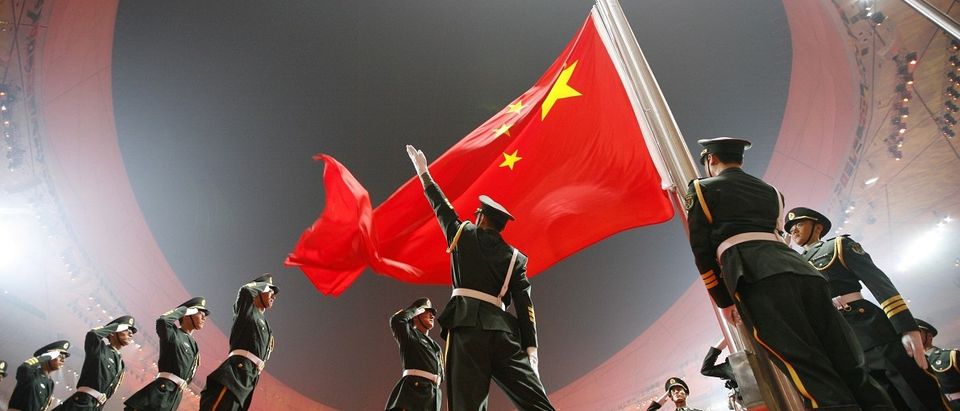Several U.S. trading partners turn to China as President Donald Trump withdraws from the Trans-Pacific Partnership (TPP).
Trump withdrew from the 12-nation trade agreement by executive order Monday, ending U.S. involvement in a legacy trade deal that former President Barack Obama worked on for the better part of his presidency. In the aftermath, several U.S. trade partners began considering alternative trade options involving China.
Australia is leading the charge in moving ahead with the TPP without the U.S. Australian trade minister Steven Ciobo said that Australia has been in talks with Canada, Mexico, Japan, New Zealand, Singapore, Malaysia, Chile, and Peru.
Ciobo suggested expanding the TPP to include China and Indonesia. He explained that a TPP agreement without the U.S. is “very much a live option.”
“We are all of us working to see how we can ensure we maintain this momentum toward open markets and free trade,” Prime Minister Turnbull told reporters on Tuesday in Sydney. “Losing the United States from the TPP is a big loss — there is no question about that — but we are not about to walk away from our commitment.”
“Certainly there is the potential for China to join the TPP,” he added.
New Zealand also suggested that the TPP could be salvaged by bringing countries like China into the fold.
China could help the countries involved in the TPP meet the Gross Domestic Product requirements for the agreement to move forward.
Malaysia expressed enthusiasm over the possibility of continuing with the TPP without the U.S. Malaysia also stressed that Asia should prepare for the deterioration of America’s presence in Asia.
ASEAN should fill the void left by the U.S., Malaysian Defence Minister Hishammuddin Hussein indicated Monday.
Chile is looking at signing bilateral trade agreements with China and South Korea and has received positive responses from Beijing and Seoul, Foreign Minister Heraldo Munoz told reporters Monday.
Singapore is also considering other trade options, such as the Regional Comprehensive Economic Partnership (RCEP) and Free-Trade Area of the Asia Pacific (FTAAP), two trade pacts advocated by China.
“Singapore is committed to pursuing a rules-based trading system and greater regional integration,” Singapore’s Ministry of Trade and Industry said. “The agreement that the TPP parties has negotiated is one such pathway to achieve stronger trade linkages that will promote growth opportunities and job creation in all the member countries.”
Speaking on the RCEP and FTAAP, the MTI said that “Singapore will continue to participate in these initiatives.”
The MTI stressed that it does not see a future for the TPP without the U.S.
China is willing to step up as a leader in globalization and international cooperation.
“The front runners have stepped back leaving the place to China,” Zhang Jun, director general of the international economics department in the Chinese Ministry of Foreign Affairs, explained, adding that “if China is required to play that leadership role then China will assume its responsibilities.”
“We think that in the present situation, no matter what happens, all should keep going down the path of open, inclusive, continuous development, seeking cooperation and win-win,” Ministry of Foreign Affairs spokeswoman Hua Chunying told reporters, without specifically stating whether China would be interested in joining the TPP, a trade agreement originally billed as a counterweight to China’s growing economic clout.
She proposed increasing efforts to advance the FTAAP and RCEP.
Japan, a close ally of the U.S. and a staunch supporter of the TPP, remains committed to the original agreement. Japan refuses to move forward without the U.S. and will continue to attempt to persuade the new U.S. administration to change course.
“The fundamental balance of interests is lost without the U.S.,” Koichi Hagiuda, deputy chief cabinet secretary, said during a regular press conference.
“The TPP would be meaningless without the United States,” Prime Minister Shinzo Abe said in November.
“We want to continue persuading the U.S. of the strategic and economic benefits,” Trade Minister Hiroshige Seko told reporters. “Among countries involved in the basic TPP agreement, it is extremely important that the largest economy, the U.S., is included. We will continue to remind the US of this tenaciously.”
Send tips to ryan@
All content created by the Daily Caller News Foundation, an independent and nonpartisan newswire service, is available without charge to any legitimate news publisher that can provide a large audience. All republished articles must include our logo, our reporter’s byline and their DCNF affiliation. For any questions about our guidelines or partnering with us, please contact licensing@dailycallernewsfoundation.org.


